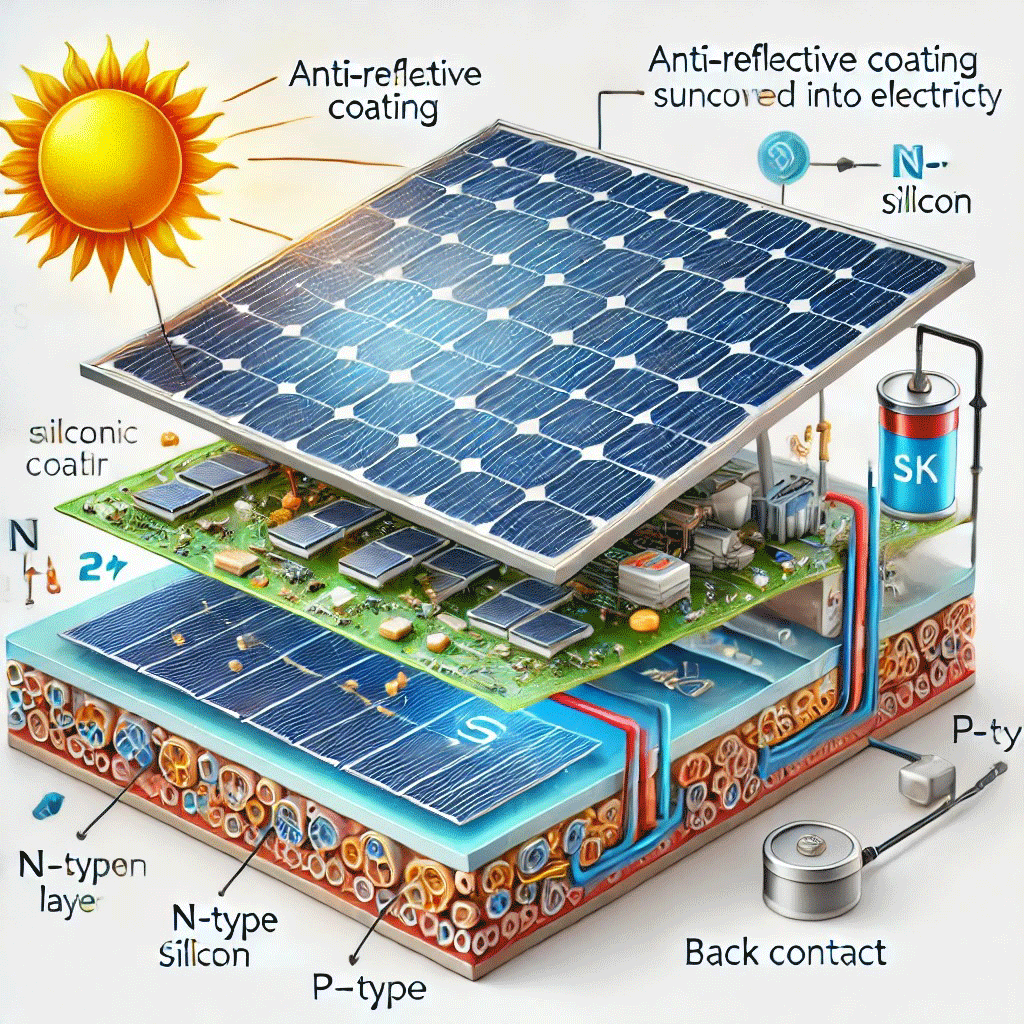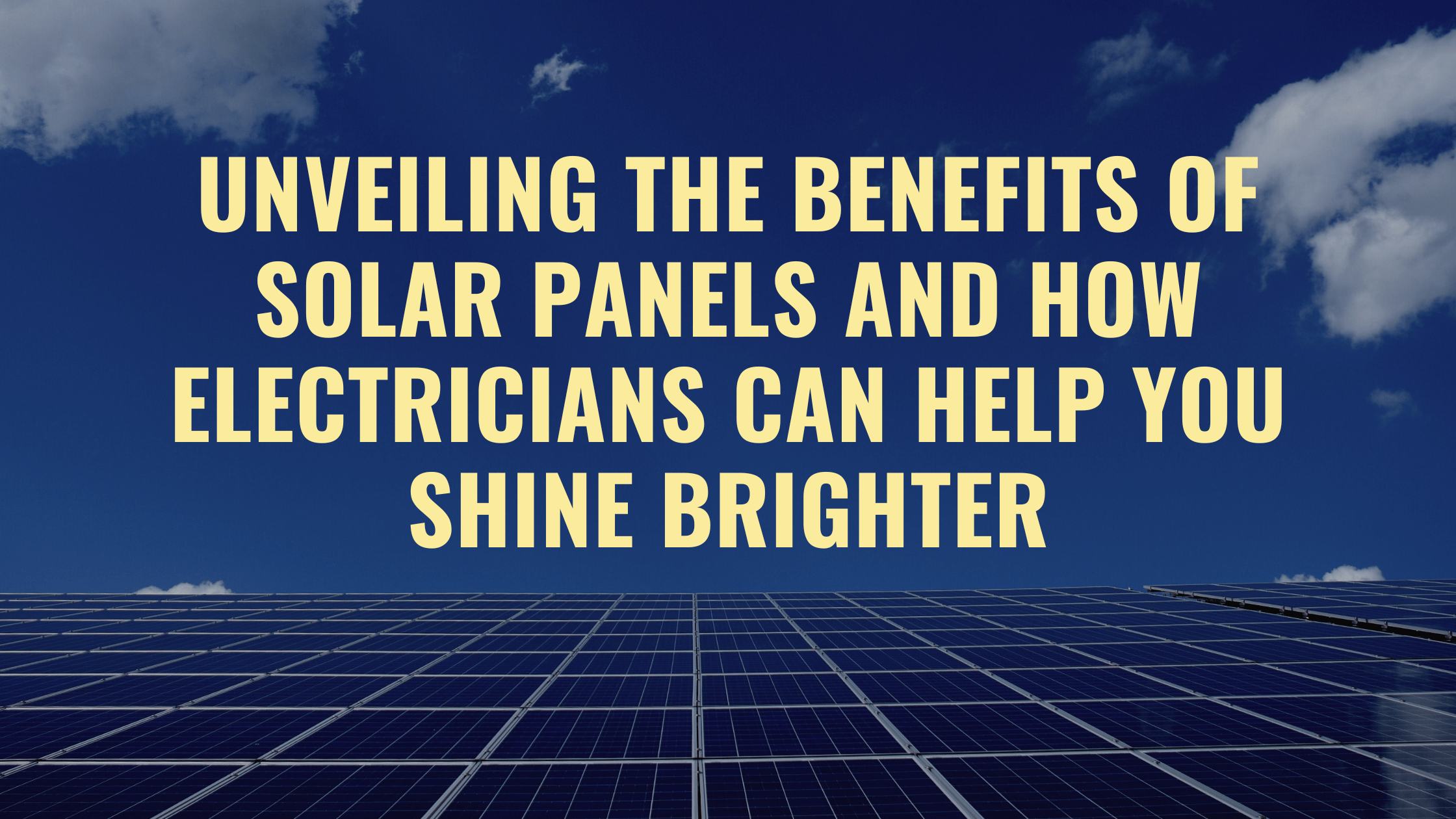Get Reliable Solar Power Solutions from Simply Solar Illinois Today
Get Reliable Solar Power Solutions from Simply Solar Illinois Today
Blog Article
Just How Solar Power Can Help You Conserve Cash and Minimize Your Carbon Impact
The assimilation of solar power right into your energy portfolio offers an engaging chance for both monetary cost savings and environmental stewardship. As numerous government motivations end up being readily available, the inquiry emerges: exactly how can one effectively navigate the first investments and ongoing advantages of solar technology to optimize both financial and ecological gains?
Comprehending Solar Power Cost Savings
While the transition to solar power usually includes an initial financial investment, comprehending solar power cost savings is critical for homeowners and services alike. Solar energy systems can dramatically decrease electrical power expenses by using the sun's energy, translating into considerable long-term monetary advantages. By producing their very own electrical energy, users decrease reliance on grid power, which undergoes changing prices. These savings can gather gradually, commonly resulting in a quick roi.
Moreover, solar energy systems may qualify for different financial rewards, including tax credit histories and rebates, additionally boosting their cost-effectiveness. The accessibility of net metering permits customers to offer excess energy back to the grid, creating an extra revenue stream. These aspects add to the general cost savings linked with solar power.

Along with direct monetary financial savings, solar power provides the included benefit of increasing building worth. Residences equipped with photovoltaic panels are usually a lot more eye-catching to customers, as they assure reduced power expenses - Simply Solar Illinois. Recognizing these elements is essential for anyone thinking about solar power, as it highlights not just the potential financial gains, however also the broader environmental and economic advantages of adopting eco-friendly energy remedies
First Prices vs. Long-Term Benefits
When examining solar energy, it is vital to weigh the first expenses versus the long-lasting advantages. The ahead of time investment for solar panels, installment, and associated devices can be significant, frequently varying from $15,000 to $30,000, depending on the system dimension and home power requirements. This preliminary expense may prevent some property owners; nonetheless, it is crucial to take into consideration the possible financial savings over time.
As soon as mounted, solar energy systems can considerably reduce or perhaps remove monthly electrical power expenses, resulting in significant long-term economic benefits. Research studies show that property owners can conserve anywhere from $10,000 to $30,000 over the life expectancy of their planetary system, typically 25 years. In addition, several states use rewards, tax obligation credit ratings, and rebates that can balance out initial expenses, making solar much more accessible.

Lowering Your Carbon Impact
Reducing your carbon footprint is a crucial factor to consider in today's ecologically conscious society, and taking on solar energy is one of one of the most effective methods to attain this objective. Solar power is a clean, renewable energy that substantially reduces reliance on nonrenewable fuel sources, which are major contributors to greenhouse gas exhausts.

In addition, the prevalent adoption of solar innovation motivates the development of environment-friendly work and sustains developments in power storage space and effectiveness. The even more individuals and companies invest in solar power, the better the collective reduction in carbon discharges, fostering a cleaner ambience for future generations.
Government Incentives and Rebates
Embracing solar power not just profits the environment yet can additionally result in substantial monetary cost savings, particularly with the availability of government incentives and refunds. Different government, state, and local programs are developed to urge house owners and services to buy solar power systems, making the transition much more cost effective.
One of the most noticeable motivations is the Federal Investment Tax Obligation Credit Scores (ITC), which allows solar system proprietors to deduct a considerable percentage of the installment expenses from their federal taxes. This reward has been critical in reducing the in advance costs related to solar power systems. Additionally, several states provide their own tax obligation credit scores, grants, and discounts that can better boost cost savings.
Furthermore, some local federal governments supply residential property tax exemptions for solar installations, making certain that house owners do not face increased residential property tax obligations as an outcome of their renewable resource investments. Utility companies may additionally provide rewards, including net metering and feed-in tolls, which allow useful content solar power users to offer excess power back to the grid.
Selecting the Right Planetary System
Selecting the ideal solar system is crucial for optimizing energy performance and financial advantages. The decision hinges on numerous variables, including power needs, spending plan, and readily available area. Homeowners must start by analyzing their power intake to determine the system dimension needed for optimum performance.
Following, consider the various kinds of solar technologies offered. Simply Solar Illinois. Solar (PV) panels are one of the most common, transforming sunlight directly right into electricity, while solar thermal systems concentrate on heating water. Each type has unique advantages relying on specific demands
Budget plan factors to consider are also extremely important. Initial setup prices a knockout post can vary substantially, so it is necessary to compare quotes from multiple companies and discover financing alternatives. Federal government incentives and discounts can better minimize the financial problem, making solar systems more available.
Conclusion
The ecological benefits of solar energy add to lasting techniques vital for combating environment change. Federal government incentives improve the feasibility of solar technology adoption, motivating a change towards a cleaner, a lot more financially reliable energy source.
Report this page